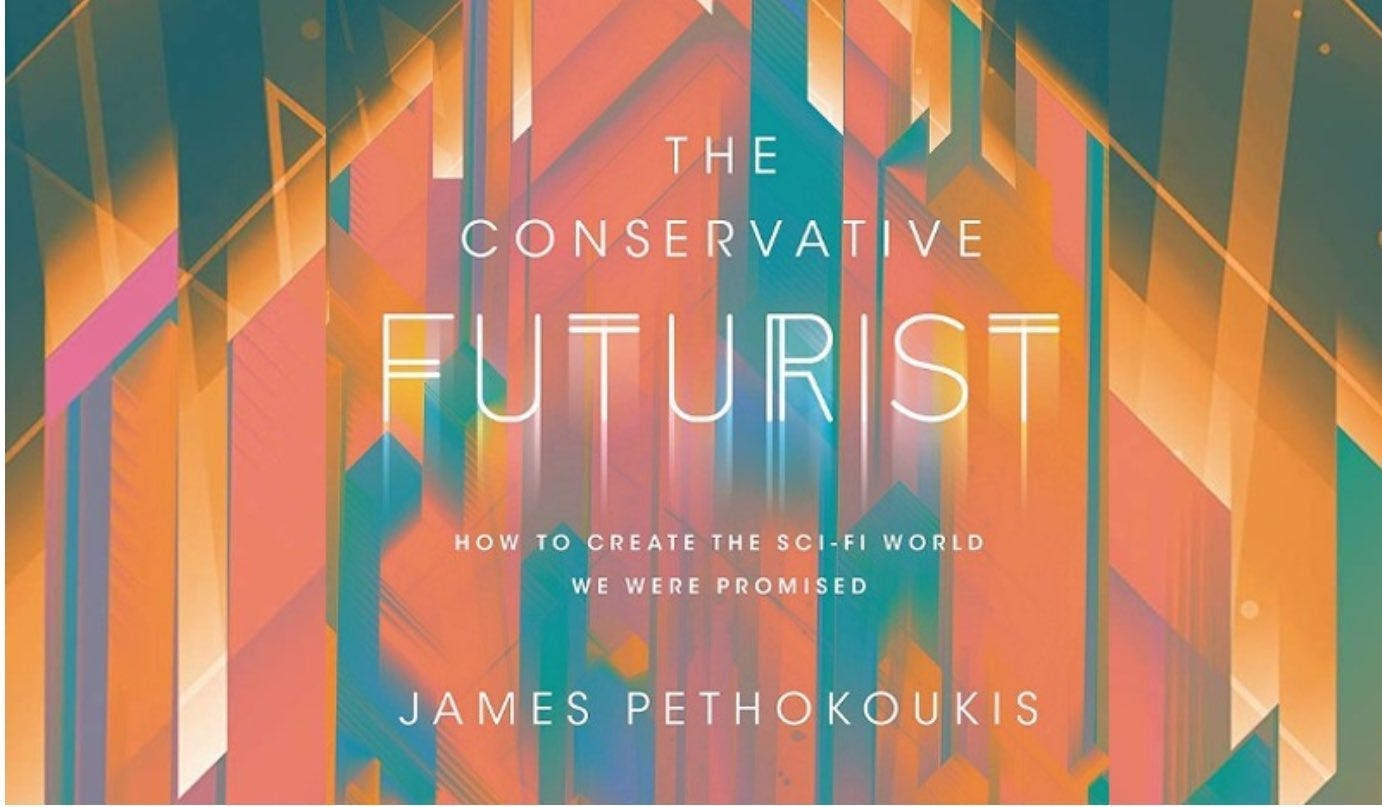💻 Tech-Savvy Tallinn: A Quick Q&A with … technologist Joel Burke on Estonian “E-Government”
'Upon re-independence and seeing how far behind they were, Estonians realized the only chance they had to catch up was through radical reform, making big bets on things like digitalizing government'
When it comes to maximizing government efficiency and navigating an evolving technological future, the US might do well to look across the pond for inspiration. Way across the pond.
According to technologist and policy researcher Joel Burke, Estonia — with a population of 1.3 million it’s one of the smallest members of the EU and NATO — may have cracked the tech-meets-government code.
From the introduction to his recent book:
This book is an attempt to share lessons from a country that is both democratic and digital, one well positioned to succeed in an era defined by artificial intelligence, rapid technological and geopolitical changes, and increased uncertainty. Despite being trapped for decades under repeated occupations, Estonia was able to become a nation that is not just home to one of the highest rates of startups and unicorn tech companies per capita in the world, but one that is an undisputed e-government leader, with 99% of government services available online.
I asked Burke a few quick questions about the culture and mindset that poised Estonia for e-governance and what the US can learn from this modern, capitalist nation.
Burke is the author of Rebooting a Nation: The Incredible Rise of Estonia, E-Government and the Startup Revolution. He has worked on four continents, led a team for Estonia’s e-Residency program, and has advised Congress on tech and AI policy issues.
1/ How did Estonia’s experience as a Soviet satellite state influence its rapid tech progress?
After decades of occupation by the Soviet Union, when Estonia regained its hard-fought independence there was a massive push to make sure the country wouldn’t be occupied ever again and, naturally, there was a mass rejection of communist ideologies and an embrace of the free market. Political leaders like former Prime Minister Laar, a great fan of Margaret Thatcher and Milton Friedman, put the country through economic shock therapy so it could become a competitive market based economy. When privatizing businesses, instead of just handing over the keys to local entrepreneurs, the government looked for foreign partners who could help to modernize these companies. According to Linnar Viik, who served as one of Prime Minister Laar’s key advisors,
When foreign investments came to Estonia, small companies in Estonia also started using computers. This was very important because the foreign investments that reached Latvia had rather fax based reports, and the foreign investments that reached Lithuania had rather checkbook-based reports.
This modernization drive, paired with a total rejection of Soviet ideology and a willingness to invest in long-term projects like connecting every school to the internet through the Tiger Leap campaign, were hugely influential in setting Estonia up on a trajectory for rapid tech progress.
2/ Is there anything unique to Estonian culture that allowed it to transform into a model of progress? Is that something that can be replicated elsewhere?
One of the fascinating things about Estonia as a case study is that it became independent at the same time as neighboring Latvia and Lithuania and has a similar population size (1.3 million). Estonia was quick to adopt digital and embrace the free market in part because of a culture that was willing to undertake hardship as, make no mistake, there was hardship caused by the economic shock therapy the government underwent to create a market-based economy when subsidies were removed and jobs were lost in noncompetitive businesses.
As to why that culture emerged — I believe part of it had to do with its neighbor Finland, a country that had long been held up as a measuring stick by Estonian society. Before the onset of WWII, Estonia and Finland had a similar quality of life. By the end of the Soviet Occupation, Finland dramatically outstripped Estonia on basically every metric from GDP to average life expectancy. Upon re-independence and seeing how far behind they were, Estonians realized that the only chance they had to catch up was through radical reform, making big bets on things like digitalizing government operations and implementing a flat tax.
In addition, Estonia’s proximity to Finland meant that during the Soviet occupation the Iron Curtain was frequently penetrated by radio and television broadcasts from Helsinki which reached much of Estonia, exposing the population not only to English language broadcasts of shows like Dallas and Dynasty, but to capitalism through that wonderful medium, advertising.
3/ What is the philosophy undergirding Estonia’s “e-government”?
The core philosophy is one of creating products that people actually want and which solve real problems. This sounds simplistic, but government often becomes disconnected from the needs of the people and Estonia has shown a remarkable entrepreneurial ability to identify meaningful problems and then solve them.
Sometimes this wasn’t even apparent to “end customers” (citizens) like with the introduction of digital identity, one of the technologies that serves as the foundation of Estonia’s e-government. When digital identity rolled out it was made mandatory, a politically unpopular move in part because the exact use case was unclear at a time when no additional services had been built on top of what was the beginning of the government service platform. At the time a joke went around that the only thing the card was good for was scraping ice off of the windshield because of its perceived uselessness.
But today, Estonians use their digital identity cards (or mobile ID) both to access government services and for private sector benefits, like store loyalty cards which can be attached to the digital identity card instead of carrying around an additional card (something I’m reminded of whenever forget to bring my Harris Teeter card when shopping) or entering a phone number every time one purchases something. While this is a bit of a silly example, the government estimates that the use of e-services has massive benefits to the country in terms of increased productivity and cost savings on the order of around two percent of GDP every year thanks to digitalizing everything from health care records to taxes.
4/ Has the conflict in Ukraine impacted the way Estonian “e-government” operates?
The war has created new urgency for Estonia and the region to innovate in every regard. I’m writing this from Tallinn ahead of the Latitude59 Summit, which in prior years was normally a tech conference with all sorts of companies and themes—today it is largely focused on defense-tech. As we’ve seen with Ukraine’s rapid development of the Diia application which powers their e-government services (partly built with the support of Estonian organizations like the e-Governance Academy), conflict is a catalyst for innovation. The same is true in Estonia where there is energy like I’ve never seen since I first started working with the country in 2017 when I became Head of Business Development for the e-Residency program. For Estonia, the fight against Russia is seen as existential given the history of occupation, and the country is united in doing whatever it takes to prevent that from ever happening again.
5/ How should the US continue to foster its entrepreneurial culture and avoid creative stagnation?
Something Estonia has done very well is nurturing innovation in both the public and private sectors. Entrepreneurs like Sten Tamkivi, who was an early employee at Skype and is now a leading VC, often work with the government in an advisory capacity and others rotate in and out of government service on tours of duty. This frequent cross pollination means that there is much more understanding and empathy between the two worlds of tech and government, so that when entrepreneurs come to the government and say that there is an issue with a law governing something mundane but important for the tech ecosystem like the taxation of privately held shares, people in the government actually listen because they now speak the same language as the tech founders and understand the importance of the issue.
At the same time, the benefits run both direction with the government able to call on the tech community in case of national emergencies, for instance if the country comes under a massive cyberattack as has happened several times before, most notably in 2007 in what was thought to be one of the first state-backed cyberattacks against another nation.
So, I’d love to see more programs like TechCongress which works to bring tech talent to Congress (full disclosure, I am an alumnus of the program) along with more recruiting of top tech talent into government (with all the requisite reforms that need to take place to make that recruitment and the retention of them possible). At the same time, I’d love it if the government was more proactive in removing blockers to entrepreneurship, especially in key sectors that are critical to the economy and Americans’ quality of life like healthcare, energy, and housing.
On sale everywhere The Conservative Futurist: How To Create the Sci-Fi World We Were Promised
Micro Reads
▶ Economics
How AI Will Harm Working-Class Families - Compact
Why Does the U.S. Always Run a Trade Deficit? - Liberty Street Economics
▶ Business
Apple Desperately Needs the AI Help It’s Seeking - Bberg Opinion
We tried on Google’s prototype AI smart glasses - The Verge
Will OpenAI ever make real money? - Economist
China’s battery giant eyes world domination - Economist
Google’s future is Google Googling - The Verge
Robotaxis Will Test Tesla in a Trillion Ways - Bberg Opinion
▶ Policy/Politics
The Case for Repealing IRA Clean Energy Subsidies - RealClearEnergy
Three Well-Tested Ways to Undermine an Autocrat - NYT Opinion
Fei-Fei Li, ‘godmother of AI,’ points to risks of cuts to US research funds and student visas - Semafor
▶ AI/Digital
▶ Biotech/Health
Vitamin D May Slow Cells’ Aging - SciAm
▶ Clean Energy/Climate
America’s Best Rare Earths Weapon Is Just Near LA - Bberg Opinion
▶ Space/Transportation
The Reality of Trump’s Golden Dome - NYT Opinion
▶ Up Wing/Down Wing
The Great Unraveling: The Trump Administration’s Budget Proposal Is an Assault on American Science - ACSH
▶ Substacks/Newsletters
Silencing the CDC - Beyond the Noise
Google's slow death has begun - AI Supremacy
Where should new cities go? - Slow Boring
If Every Mineral Is Critical Then None Are - Breakthrough Journal




